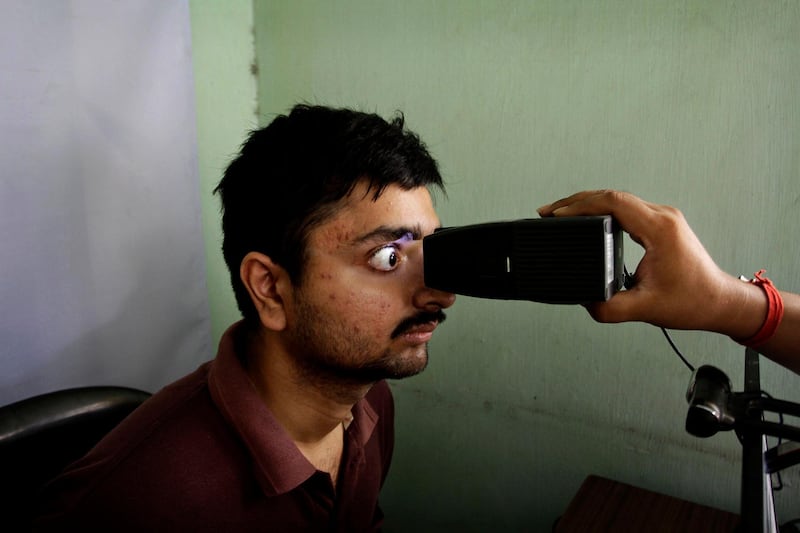India’s Supreme Court on Wednesday diluted the government’s controversial biometric ID scheme, restricting its use to a handful of cases and barring corporations from accessing its data.
The verdict handed a limited victory to lawyers and activists who said the scheme culminated in overreach and argued that it put the private information of hundreds of millions of Indians at risk.
Known as Aadhaar, the system was launched in 2009. By collecting fingerprints, retina scans and personal details, and by assigning each person a 12-digit number, Aadhaar hoped to deliver welfare subsidies directly to beneficiaries, shrinking the possibility of corruption.
Even though the scheme was never meant to be mandatory it began to intrude into every domain of Indian residents' lives.
Schools demanded ID numbers to enrol students. Banks and mobile phone companies refused to offer their services without Aadhaar. Sending a package through the postal service, filing income tax, and dozens of other routine tasks also required the ID. No other forms of identification would do, even though taxpayers in India already have a separate, unique taxpayer ID number.
As a result, 1.2 out of 1.3 billion Indians have already enrolled in the Aadhaar system.
Data security and privacy experts remain worried that giving so many private and state agencies access to Aadhaar puts the information of citizens at risk. Like a key, the ID number could be used to open every aspect of a person's life: financial history, mobile telephone records, travel history, and other details.
These concerns were stoked by numerous breaches of Aadhaar data over the past two years. Middlemen offered to sell access to the database for 500 rupees. And more than 200 government web sites were discovered to have mistakenly published private Aadhaar data.
In January, the Supreme Court began hearing arguments from privacy campaigners, civil society activists, lawyers and data security experts, who contended that the system infringed on the right to privacy and was therefore unconstitutional.
On Wednesday, of the five judges on the bench, one filed a dissenting opinion, saying that Aadhaar “suffers from constitutional infirmities”. The majority opinion held that Aadhaar treads upon no fundamental rights.
But the judges struck down the need for citizens to present their Aadhaar details to get a mobile telephone connection or open a bank account or enroll a child in school. The court also deemed it illegal for any private companies to ask for Aadhaar details.
It is unclear what will happen to the Aadhaar data that numerous private companies have already collected, and who will supervise their dismantling of their ID records.
Residents of India will now need an Aadhaar only to avail of government welfare schemes and to file their taxes.
__________
Read more:
Row reduces hopes for India-Pakistan thaw
Editorial: A glimmer of hope dims in India-Pakistan relations
__________
“Further, if the biometric identification system fails, for some reason, the person cannot be denied access to the welfare scheme,” Prashant Bhushan, a lawyer who frequently fights cases in the Supreme Court, said. State agencies will then be forced to accept other means of identification.
The measure is a response to several reports of people dying, either because they did not have an Aadhaar number or because the biometric scanner did not work. In some cases, they were denied government-subsidised food rations; in others, they were denied treatment at government hospitals.
Several of the concerns of data privacy campaigners remain, however. Aadhaar poses no danger to privacy, four of the five judges said. “The data obtained is very, very minimal, [and] the benefit, especially to the marginalised, is large,” Justice A. M. Sikri said on Wednesday.
The court urged the government, however, to enact stronger data protection laws to safeguard the information collected by Aadhaar.





